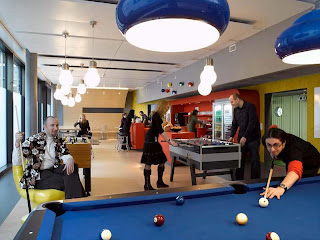Monday, September 13, 2010
Keep Moving Forward
Sunday, August 8, 2010
Design Observation: YUCK





Despite its shortcomings, I don't think I'll be replacing Kitty. Other than that minor flaw, I'm just going to go ahead and accept it as being eccentric. And besides, it feels pretty good to know that I have the only electric fan in the world that can defy the laws of physics.
Monday, August 2, 2010
A Mind Map of Mind Mapping
Monday, July 26, 2010
Design Observation: WOW
.PNG)




Fitness First





Monday, June 28, 2010
Five Minds...Four Minds Too Much?
Monday, June 21, 2010
On the Arts
“Intelligence plus character – that is the goal of true education.”
– Dr. Martin Luther King Jr.
I think Ken Robinson’s article was the best way to start our Creativity and Problem Awareness class, mostly due to my tremendous relief at finding out that I am not as un-creative as I often think of myself. His stress on creativity being inherent in all human beings assured me that I do have hope…and that I’m not in the wrong class.
That aside, I completely agree with the points he made, most especially about the insufficient priority given to the arts. This is already an indication that society disapproves overt expressions of their definition of “creativity”. These days, we are taught that creativity is being good at drawing, painting, music and the like. But creativity can be found in all aspects of our lives, and in all the fields of study, as Mr. Robinson has pointed out. Now the problem is how we get everyone to believe it.
The best example I can think of is the one closest to home: the four Loyola Schools in the Ateneo. It’s hard for some to admit, but there exists an invisible heirarchy among the four Schools. Dominating the top is the John Gokongwei School of Management, followed by the School of Science and Engineering, then the School of Social Sciences and then the School of Humanities. As a Communication major, I have personally felt the hidden disdain that usually comes with my answering a question about what my course is. This is a clear example of what Ken Robinson said about the existence of heirarchies within the fields of study in schools, stemming from economic competitiveness and the wrong idea about the insignificance of non-business or arts related courses.
Most people are in the School of Management because logic tells them that a degree there will certainly get them employed immediately after college. Same goes for the School of Science and Engineering. The fact that the School of Humanities has the lowest student population should come as no surprise. The sad truth is that college nowadays serves simply as the stepping stone to the best, highest paying job, and the learning experience that should be the main emphasis is taken for granted. I can only hope that Ateneo does not become one of those educational institutions where the notion of creativity is limited and extremely lacking.
But we can’t take full responsibility for this, because the media also played a large role in the demise of the Arts. In most movies or television shows depicting schools (i.e., Glee), the Arts and Music programs are the most commonly cut from the school budget. They become, as Mr. Robinson put it, “collateral damage.”And although I know that these are based on real life situations, it reinforces and justifies people’s beliefs precisely because media is so powerful in affecting society. We of all people should know this.
To sum it all up, I completely agree with Dr. Luther King. True education should bestow us with not just academic intelligence but also with the right amount of character to be able to utilize that intelligence in the best way we can. And the best way to cultivate this character is if we finally give the Arts the credit and respect they so rightfully deserve.
Me, Myself and I
Anyway, moving on to more pressing matters, I believe I have certain quirks about myself that I have to come clean with to officially "baptize" my Creativity and Problem Awareness blog (Hello, classmates and Sir Mark!), and the first major one that I will disclose is this: I do not blog often. Actually, let me rephrase that, I do not blog AT ALL.
- My name is Gwenivere Alexis L. Co. I was named after King Arthur's wife, but I'm not entirely proud of it because...well, you know. (If you don't, look it up. If not, well then ok :D) My nickname is Gwen.
- I just turned 19...this morning. :)
- I am generally loud, rambunctious, an extrovert, and as one potential employer has put it: "gregarious" (I LOVE THAT WORD)
- I am a self-proclaimed 'fraidy cat. You will never catch me in one of Sir Andrew Ty's horror film classes unless you drag me there and strap me to a chair. (Although I am dreadfully curious what does on during his film viewings...)
- I am sentimental; I tend to cry over shallow things. Like movies. And puppies.
- I love food. Seriously.
